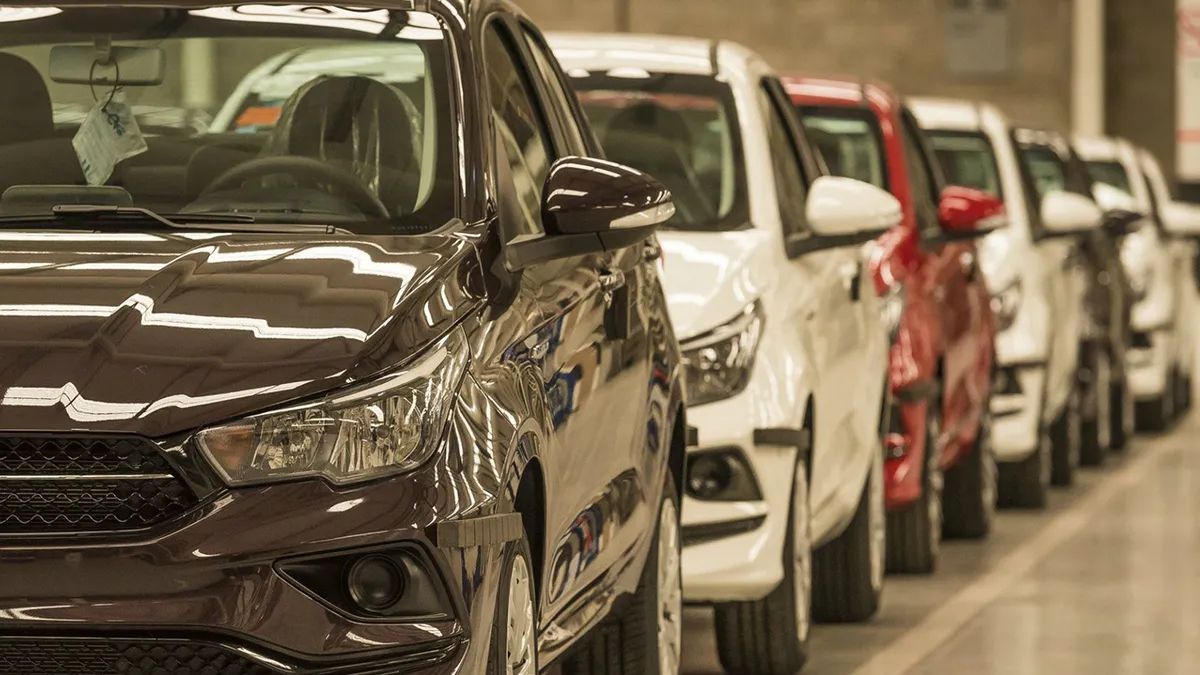With the “New Class” cars on a pure electric platform, BMW wants to raise profitability to the level of combustion engines. But the car manufacturer first has to spend a lot of money to achieve this.
The car manufacturer BMW is planning the highest investments in the company’s history this year and is therefore expecting a slight decline in profit before taxes. CFO Walter Mertl said on Thursday that with the construction of the battery factories in Bavaria, China, Mexico and the USA, the construction of the car plant in Hungary and the start of production of the “New Class” electric cars, investments, research and development costs increased. to a new level”.
BMW sold 2.55 million cars last year, generated 155.5 billion euros in sales and 17.1 billion euros in profit before taxes. This year, car sales are expected to increase slightly, with fully electric (BEV) and luxury cars driving growth. This means sales will also grow, said Mertl. BMW is targeting a profit margin in its core business of between eight and ten percent of sales, after 9.8 percent last year.
The continuing fall in used car prices is also likely to contribute to the decline in profits, said Mertl. This means that the result in the leasing business will fall. The main reason for the decline in profits is the increase in investments to more than 6 percent of sales and research and development costs to more than 5 percent. The upper limit of the target corridor is actually less than ten percent.
At the annual press conference, BMW presented its first SUV vision vehicle on the Neue Klasse platform. The car is scheduled to roll off the production line at the new Hungarian factory in Debrecen next year. CEO Oliver Zipse said the Neue Klasse was “the redefinition of the BMW brand.”
Only four control units left
Chief Development Officer Frank Weber said that for customers it means 30 percent more range and 30 percent faster charging speed compared to today’s electric BMW, and for the company it means a good 40 percent lower costs for the drive train. The New Class battery cars (BEVs) are based on a pure electric platform. The design and the new, faster electrical system of the New Class will also be used for future combustion engines. Instead of dozens of control units, there are now only four that are installed in all new-class cars.
For the New Class, BMW is making the largest investment in the company’s history with the aim of bringing the costs and profitability of electric cars to the level of a combustion engine. As the share of new-class BEVs increases, the profit margins of BEVs and combustion engines gradually come closer, said Mertl. Equality could be achieved by the end of the decade, Weber said. However, raw material prices would also have to “move within normal channels”. Nobody knows what lithium and other battery raw materials will cost in two years.
On the question of the end of the combustion engine, Weber said that the range of electric vehicles and, above all, charging were the biggest hurdles for car buyers. There are now electric car customers who are returning to the plug-in hybrid. For the successful transition, the charging infrastructure, green electricity for the construction and operation of the cars and the recycling of battery raw materials are necessary. This won’t happen overnight. With regard to the EU requirements, Zipse warned that the goal should be maximum climate impact, not a specific technology. But sometimes the arguments are “almost ideological.”
Chief Financial Officer Mertl explained that in addition to the Debrecen car plant and the four battery assembly plants, the expansion of the Munich plant and the electrification of the mini-plant in Oxford also led to the peak in investments. When it comes to sales, BMW expects electric and luxury cars to drive double-digit growth rates. The group has 15 BEV models on offer and aims to sell more than half a million BEV cars this year. Last year, BMW undercut the EU’s prescribed fleet CO2 value of 128.5 grams of CO2 per kilometer by over 20 percent at 102.1 grams. BMW has a global market share of 3.3 percent, but the Munich-based company already has a market share of 4.1 percent for fully electric cars.
Source: Stern




